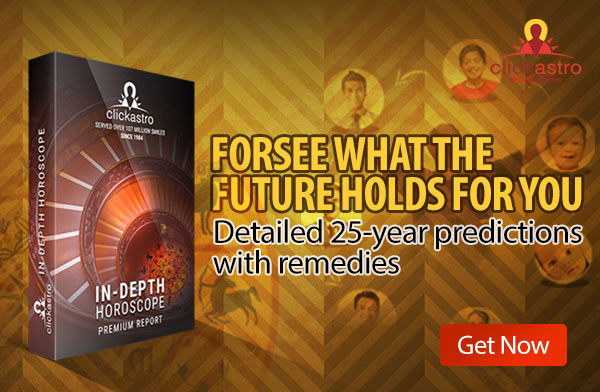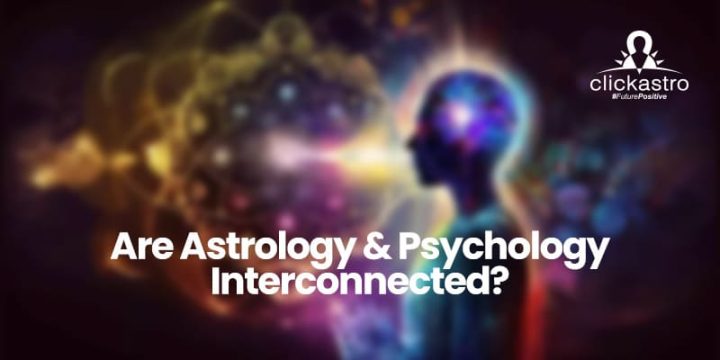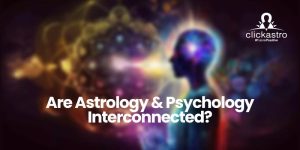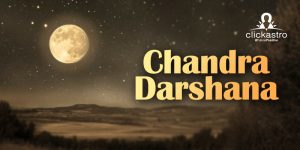Contents[hide]

Exploring Cosmic Symbolism and the Depths of the Psyche
The human soul has always searched for meaning in the stars above and the silence within. And in this endless search, two paths have often crossed more than we realise: astrology and psychology. At first glance, they may seem like distant relatives. One rooted in ancient wisdom, the other in modern science. Yet both, in their own unique ways, try to answer the same timeless questions: Who am I? Why do I feel what I feel? What truly shapes my path? While psychology is accepted as a science, built on evidence and research, astrology stands as a symbolic language, a spiritual map guided by the cosmos. But just because something isn’t “scientific” does not mean it is irrelevant. After all, some truths can only be felt deep inside, not proven on paper. Astrology traces how planets and stars might influence our temperament, our choices, and our life journeys. Psychology, on the other hand, explores the many layers of the human mind, from patterns learned in childhood to hidden fears. And somewhere between these two lies a subtle but profound connection. In the pages ahead, let’s explore this deeper. Together, we will explore their history, the theories that shaped them, and the ideas that have grown around them. You might be surprised to discover how deeply these two realms intertwine. They are not opposites, but rather reflections of the same inner universe that lives within us all.A Journey Through Time: Historical Echoes
To truly understand the sacred thread that binds astrology and psychology, we must journey back. Not just a few decades, but centuries, to a time when these disciplines were not two, but one. In the ancient worlds of Babylon, Egypt, and Greece, astrology was not some fringe belief. It was woven into philosophy, medicine, spirituality, and even politics. What is more, the stars were not simply distant lights; they became true storytellers. Also, each zodiac sign was part of a myth, and each planetary transit is a divine whisper shaping the fates of kings and commoners alike. In India, the story unfolds through Vedic astrology, or Jyotish Shastra. Rooted in the timeless Vedas, Jyotish did not just predict events. It revealed the karma of the soul. With scriptures like the Brihat Parashara Hora Shastra, this ancient wisdom offered maps of destiny, read not with logic alone, but with intuition and reverence. The planets, then, were not seen as outside forces. Instead, they were understood as reflections of our own inner patterns, playing out their dance across many lifetimes. As we move into the medieval era, astrology continued to guide both personal and royal decisions. But then came the age of reason, the Renaissance, the rise of empirical science. Slowly, the mysticism faded from mainstream discourse. Astrology was labelled “unscientific” and pushed into the margins. And yet, it never truly disappeared. Then there was Carl Jung, a man who saw what others dismissed. Jung studied it deeply. In his view, astrology echoed the symbolic language of the collective unconscious, offering access to archetypes that shape human thought, emotion, and destiny. He lit the first torch in modern times, reigniting the bridge between the psyche and the stars.The Core Ideas That Connect Astrology and Psychology
The essence of astrology is its premise: that the celestial bodies’ positions when a person is born reflect the energies, traits, and themes of their lives. This is not a blueprint for fate, but rather a mirror that shows what already exists within, waiting to be revealed. In a way, this aligns with certain psychological ideas. Our surroundings, our upbringing, and our early days significantly influence who we grow into. Both astrology and psychology honour the deep truth that context matters. Whether it is the sky at your birth or the home you were raised in, something larger is always at play. And then comes Jung’s archetypal psychology, the bridge we have been looking for. Jung believed that human beings come into the world with universal symbols, these archetypes, already present within the collective unconscious. These same archetypes show up in astrology, too: Mars as the warrior, Venus as the lover, and Saturn as the stern teacher. Jung did not consider astrology mere superstition. He saw it as a language, a symbolic code through which the unconscious could finally speak its truths, allowing the conscious mind to understand. Perhaps astrology and psychology are not different roads at all. Instead, consider them a single, winding journey. It’s a path that starts with a question and ultimately ends with you facing your own reflection.Connecting the Cosmos with Your Inner Self
Archetypes: Where Symbols Become Soul
In the quiet space where psychology meets the stars, we can find a common language: archetypes. These are the eternal symbols that live deep within the human psyche. You can see them mirrored in dreams. They also appear in the patterns of the night sky, in the silent dance of planets and the rhythm of constellations. Carl Jung taught that archetypes are the silent architects of the psyche, forming the foundation beneath our conscious awareness: timeless patterns etched into both soul and sky. They are not just ideas; they are experiences, lived, felt, and inherited. And astrology, in its most profound form, is the symbolic map of these very experiences. Take the Moon, for instance. In astrology, she embodies the mother, soft, emotional, and protective. In psychology, the same archetype speaks of nurturance, safety, and the complex landscape of our early bonds. Mars? The warrior: action, anger, desire. Saturn? The wise old teacher, strict yet necessary. These celestial forces are not “out there.” They are mirrors of what is within us. Your birth chart, then, truly becomes more than just a tool for prediction. It is a psychological blueprint. A sacred document etched in stars, pointing not to fixed fate, but to potential. It reflects your emotional tendencies, your internal struggles, and your deepest longings. All written in a cosmic code that, once unlocked, doesn’t just reveal information, it whispers truth to the soul. This is where astrology stops being “belief” and starts becoming self-revelation.At their heart, both astrology and psychology have the same sacred intention: to understand the self. Not just who we appear to be, but who we are underneath the layers: our fears, our desires, our wounds, and our light. Psychology encourages us to dig deeper, to face the unconscious, make peace with our past, and integrate the parts of us we have rejected. Jung called this process individuation, becoming whole. Astrology, especially when approached psychologically, offers a path toward that same goal. It calls us to explore the cosmic energies that gently shape our feelings and thoughts. And perhaps the most beautiful connection of all can be found in Jung’s concept of the shadow, those parts of ourselves we tend to deny or keep hidden. In astrology, we often meet the shadow through tough planetary placements: Saturn’s stern lessons, Pluto’s deep transformations, or Mars’ uncontrolled rage. These are not curses; they are callings. They guide us gently to look within, to grow through it, and to rise above all. By embracing these challenging energies, instead of fearing or avoiding them, we step into healing. We become whole.
The Healing Space: When Astrology Enters Therapy
Today, an increasing number of therapists are recognising the value of astrology. Not as dogma, but as insight. In astrological counselling, the natal chart becomes a therapeutic tool. It does not replace therapy. It enhances it, bringing layers that traditional analysis may miss. Imagine a session where the client’s chart is not used to “predict,” but to understand: why they attract certain relationships, why they struggle with assertiveness, why they fear success. Suddenly, healing becomes less about diagnosis and more about dialogue between psyche and cosmos. This emerging field, often called psychodynamic astrology, blends Jungian principles with astrological interpretation. It does not promise quick fixes. Instead, it offers depth. It honours the complexity of being human, seeing each person as a story, written partly by stars, partly by self, and still unfolding.The Bridge and the Balance: A Look at Scepticism
Even as the bridge between astrology and psychology grows stronger, it has not been built without some resistance. In academic circles and scientific communities, scepticism often lingers, sometimes quite loudly. Psychology, rooted in research and models built on evidence, often questions astrology’s validity. After all, how can planetary positions at birth be tested, replicated, or proven? To the rational mind, astrology may seem like a poetic illusion. Beautiful, perhaps, but unreliable. A horoscope, they say, is no substitute for a clinical diagnosis. And yet, in that criticism lies a misunderstanding. Astrology was never meant to be a science in the way psychology is. It is a symbolic language, not a formula. It speaks to intuition, not statistics. It mirrors, rather than measures. And sometimes, what cannot be proven still carries truth, the kind that is felt, not argued. Those who embrace psychological astrology do not dismiss evidence. Instead, they invite a broader definition of healing. Not all insight comes from charts and peer-reviewed journals. Some come in dreams, metaphors, and cosmic mirrors that reflect the inner world in ways conventional tools cannot. So perhaps, scepticism is not the enemy. It is the balance. It reminds us to stay grounded while reaching for the stars.The Ever-Unfolding Conversation: From Yesterday to Tomorrow
Today, something beautiful is happening. The once-divided roads of astrology and psychology are quietly meeting in the middle. They meet in the spaces where people seek meaning beyond labels, beyond binaries. Modern psychology has expanded, embracing schools like depth psychology and transpersonal psychology that go beyond behaviour and into the spiritual and symbolic realms. These approaches welcome astrology not as a science, but as a sacred storytelling tool. It becomes a companion on the journey toward wholeness. Therapists and seekers alike are now exploring psychological astrology, not to predict the future, but to better understand the self. They look to planetary placements not for “answers,” but for insight. These are symbols that reach deep inside, revealing a quiet knowing, a flash of recognition, and that gentle, powerful feeling of “yes, this is truly me.” And in our hyper-digital world, the conversation is only growing. Thanks to astrology apps, online services, birth chart tools, and online communities, the cosmic wisdom is now just a tap away for everyone. It is no longer reserved for mystics or scholars. It is available to anyone with curiosity and an open heart. This digital rebirth of astrology is not replacing psychology. It is complementing it. Together, they offer not just healing but understanding. Not just analysis, but awareness. Not just answers, but depth.Conclusion
From the ancient skies of Babylon to the quiet reflections of a modern therapy room, the relationship between astrology and psychology has echoed through time. Sometimes side by side, sometimes worlds apart, but always circling the same core question: Who am I, really?This timeless dance between the cosmic and the conscious reveals our soul’s deepest longing: to be seen, understood, and healed. While psychology offers a structured path, grounded in science and observation, astrology speaks in symbols and metaphors, inviting a more intuitive exploration of the self. It’s true, astrology is not science. It doesn’t claim clinical precision or replicable results. But for many, it offers something just as powerful: meaning. A way to understand their shadows and strengths, to see their inner conflicts mirrored in the stars, to feel, even if briefly, that the universe is listening.
Of course, we must hold space for scepticism. Discernment is essential. Astrology should never replace evidence-based therapy or professional care. But neither should we dismiss the quiet healing it offers, the language it gives to emotions we often cannot name. In the end, whether you’re a seeker of science, spirit, or something in between, the bridge between psychology and astrology is not about choosing a side. It’s about recognising that the inner world is vast, and there is no one road to knowing it fully. For some, it’s in a therapist’s chair. For others, it’s in a birth chart. And for many, it’s in the beautiful, evolving dialogue between the two.







